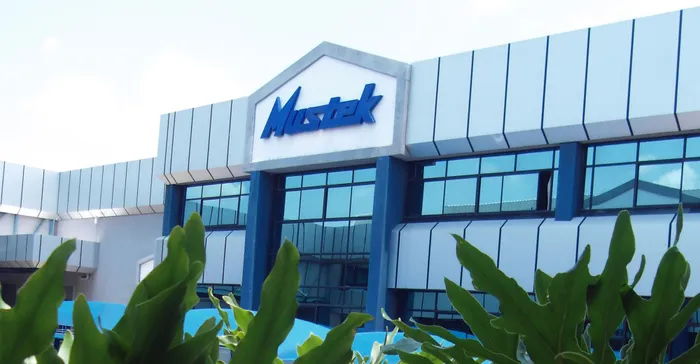Mustek's Strategic Shift: Embracing AI and Digital Transformation in South Africa
ICT

Mustek directors look forward to its 2026 financial year with “cautious optimism,” as the company has sharpened its cost base, it trades through a more focused portfolio and has an active pipeline of business.
Image: Supplied
There are early signs of greater urgency around infrastructure, education, and digital transformation in South Africa’s Government of National Unity, which plays into the strengths of JSE-listed ICT group Mustek.
This was according to the group’s CEO Hein Engelbrecht, who said in the annual report released Friday that they were heading into the new financial year to June 30, 2026, with “cautious optimism,” a sharpened cost base, a more focused portfolio, and an active pipeline of business.
This was after the relatively stable demand experienced by the group for the past financial year was only interspersed with worse-than-expected procurement delays and administrative uncertainty in the public sector, which resulted in lower device sales and slower delivery on major contracts.
“We have every reason to believe that this is a temporary situation,” said Engelbrecht in the report.
Effective August 2025, Mustek acquired a 51% equity interest in a new entity, Business AI, which is developing a B2B marketplace portal for artificial intelligence, providing enterprises with a single, trusted environment to access vetted AI vendors, products, platforms, solution providers, and data centres.
“This investment extends Mustek’s role in the AI value chain, enhancing its ability to deliver innovation, accessibility, and sustainable growth for its stakeholders,” said Engelbrecht.
Chairman Isaac Mophatlane said one of the most significant steps taken by the board this past year was the decision to realign the investment model. In previous years, minority stakes were held in several ventures, which limited the ability to drive outcomes.
“Going forward, our strategy is to only invest where we can hold a controlling interest and help shape the destiny of the business. This will ensure stronger governance, better accountability, and long-term alignment with our vision. In line with this strategy, we have continued to divest from non-core assets, allowing us to concentrate on high-impact areas that fall within our core strengths, including IT hardware and services, sustainable energy, cloud infrastructure, cybersecurity, and training,” he said.
The report said “the continued breakdown of public procurement processes” was one of the past year’s “most disruptive themes.”
“These investment delays affect the IT sector more severely than in previous years. A significant number of technology consumers—especially public service institutions—were unable to act on approved budgets or proceed with planned device and infrastructure rollouts,” the report said.
Despite this, the underlying demand for IT in the public sector remained strong, and there were indications that deferred procurement may start up again in the 2026 financial year.
“This latent demand, especially in areas tied to service delivery and digitisation mandates, could drive a meaningful recovery once fiscal processes stabilise,” the group said.
Mustek directors said that the digital divide in South Africa was a growing concern. “While Statista estimates internet penetration to be 77.85% in 2025, connectivity remains uneven across urban and rural areas. Affordability, speed, and access remain significant barriers for many.”
The government aims to reach 80% of households through the South Africa Connect programme, but rollout delays continue.
“This widening gap between the digitally connected and excluded creates long-term risks but also highlights the role Mustek can play in closing that divide through the provision of devices, infrastructure, and skills training,” they said.
On the international front, and aside from the impact of the subdued local economy, global uncertainty remained a factor. Geopolitical tension, interest rate volatility, and supply chain fragility continued to affect currency performance, pricing dynamics, and import costs, particularly in emerging markets like South Africa, the directors said.
In the past financial year, Mustek raised its dividend sharply to 13.75 cents from 7.50 cents the previous year, while headline earnings per share increased to 72.73 cents from 67.13 cents. The share price traded 0.14% lower on Friday afternoon at R13.98, remaining consistent with the share price at the same time last year.
Visit:www.businessreport.co.za